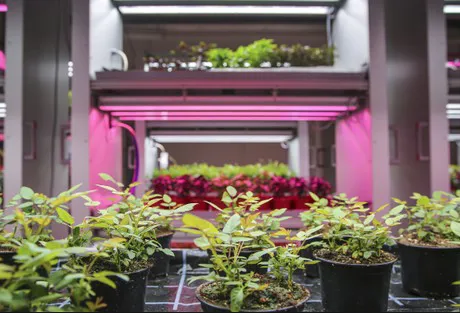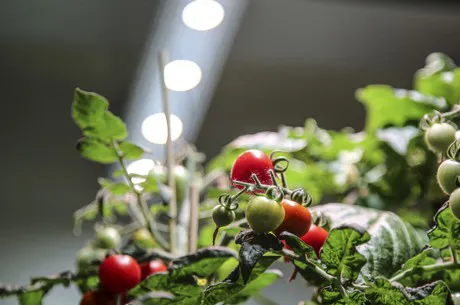The Bayerische Landesanstalt für Weinbau und Gartenbau (LWG) will be entering the world of research on vertical farming starting on Thursday, 4 July 2019, with the opening of an "indoor LED multilayer cultural area". 
Source: Bayerische Landesanstalt für Weinbau und Gartenbau (LWG)
They are round, oval or drop-shaped; usually red, but sometimes also yellow, violet and black: Worldwide, there are several thousand varieties of tomatoes, which originally came from Central/South America and were already cultivated by the Mayas.
While the first tomatoes can be picked in home gardens starting in July, Germans' favorite vegetables under glass are available almost throughout the year. However, they often travel enormous distances, at the expense of the environment. With the high-tech plants of the future, which are functioning without glass, and are a form of space and resource-friendly cultivation -whether above ground or below- is possible.
XXL-tech plantations
The cultivation of tomatoes, herbs and many more products is just a step away: with indoor farming solutions under LED lighting, freshness is redefined and just one step away for processing. Even if domestic indoor farming still needs development potential and is often still regarded as a "gimmick", vertical farming - it's big high-tech brother - has enormous potential.
Source: Bayerische Landesanstalt für Weinbau und Gartenbau (LWG)
This is because cultivation in a closed space, when reasonable hygiene standards are applied, not only reduces the pest and disease pressure to a minimum, but great savings on water and heating energy become possible this way as well. Also, throughout the year a consistently high quality in vegetable and ornamental plant production can be achieved through this form of cultivation.
Source: LWG © Veitshöchheim
